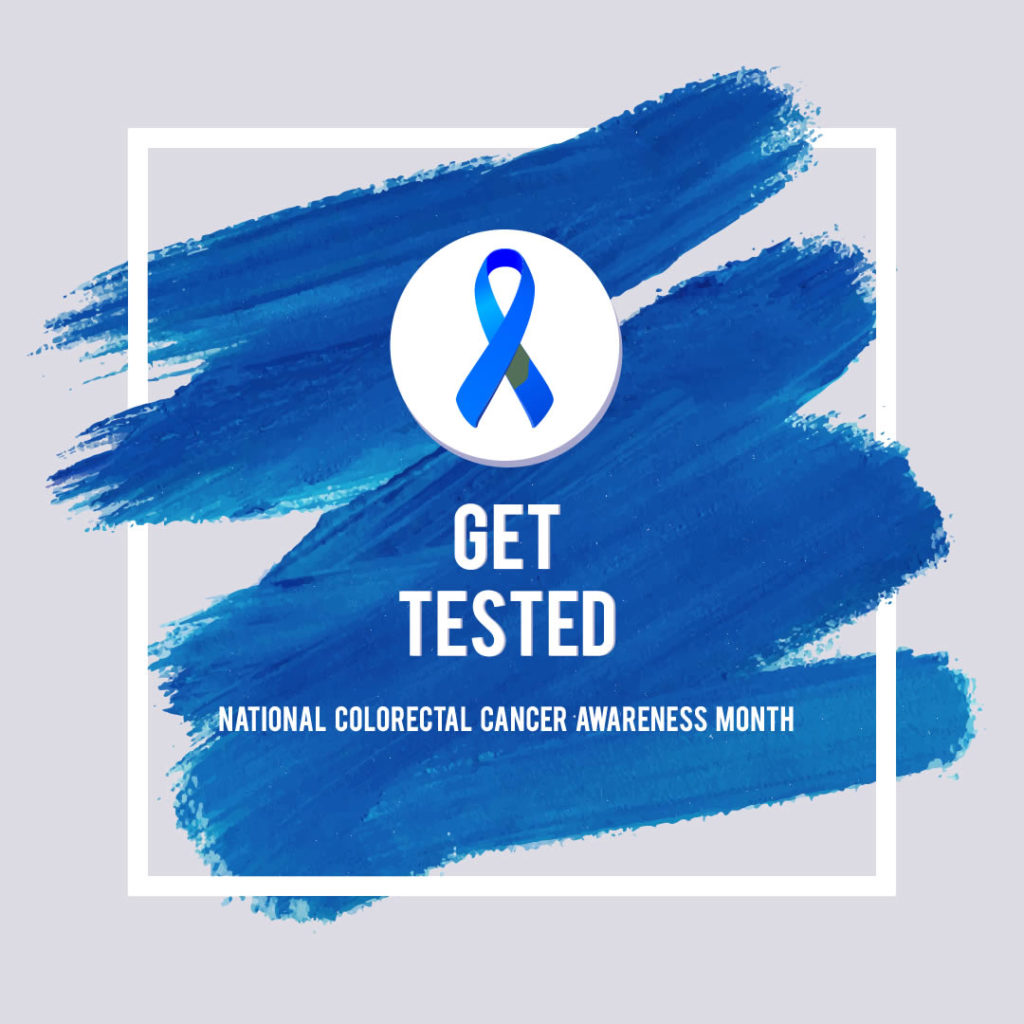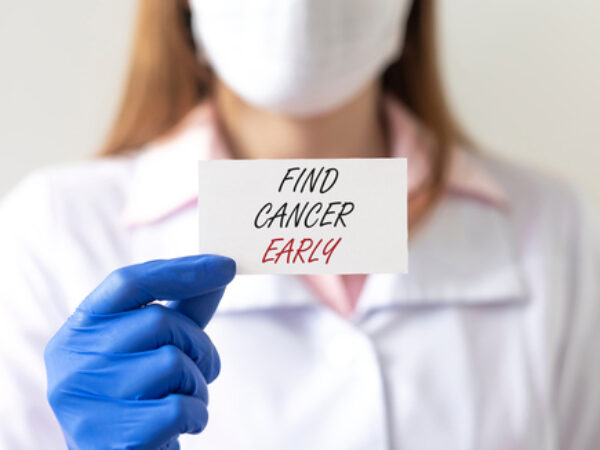
Colorectal cancer is a leading cause of cancer deaths in the US for men and women. But many colorectal cancers can be caught early – when they can be easier to treat – and so the five-year survival rate is also relatively high, at 64.6%. That’s why getting screened is especially important now, because cancer screenings have declined during the COVID pandemic.
Risk factors for colorectal cancer include:
- Family history of colon or rectal cancer
- Personal history of colorectal or ovarian cancer
- A personal history of colorectal polyps that are 1 centimeter or larger in size
- Certain inherited genes
- Chronic ulcerative colitis or Crohn’s disease
- African-American heritage
Over 45, under 75. Get tested. Get treated. Get on with your life.
The American Cancer Society recommends regular CRC screening for people of average risk between the ages of 45 and 75. There are several different types of tests, so talk with your doctor about which option is best for you, and frequency of testing.
Check with your doctor immediately if you have any of the following:
- A change in bowel habits
- Blood in your stool
- Diarrhea, constipation, or feeling that the bowel does not empty all the way
- Stools that are narrower than usual
- Frequent gas pains, bloating, fullness, or cramps
- Weight loss for no apparent reason
- Fatigue
- Vomiting
Lifestyle and diet changes that help lower your risk.
Lifestyle Factors
One of the greatest tragedies of CRC is that more than half of all cases and deaths are attributed to lifestyle factors you can change. Smoking increases your risk of cancer. So does high alcohol consumption, physical inactivity, and obesity. So, get out and get active.
Diet Factors
The American Cancer Society reports that you can lower your risk with a high-fiber diet of vegetables, fruits, and whole grains. There’s also a link between red meats or processed meats and increased risk. Staying hydrated and limiting your sugar intake (including sugar alcohols) will go a long way to feeling better and lowering your risk of colon cancer. However, one risk factor that nobody can control is aging.
Treating Colorectal Cancers
At MRO, we may recommend radiation therapy for colorectal cancer treatment for a number of reasons. The type of radiation therapy you get depends on the type and stage of the cancer being treated.
We use radiation therapy most often as a treatment for rectal cancer, before or after surgery – sometimes with chemotherapy – to kill any cancer cells that may be left behind, or that that come back after initial treatment. Your MRO care team may also use radiation to control rectal cancer if you’re not healthy enough for surgery, or to ease symptoms if advanced cancer is causing intestinal blockage, bleeding, or pain.
It’s not common to use radiation therapy to treat colon cancer, but in certain cases our doctors may use it before surgery to help shrink a tumor and make it easier to remove. During or after surgery, we often use radiation in the same ways as in rectal cancer, to kill remaining cells, or if a patient isn’t healthy enough for surgery.
Stay healthy. Stay well. Stay informed.
At MRO, we care about your health and the health of our community. So take care of yourself.
If you’re over 45, talk to your doctor about CRC screening. And talk to your family about living a healthy lifestyle. March is Colorectal Cancer Awareness Month, so march to it!
To learn more about colorectal cancer and treatment, visit:
https://mropa.com/what-to-expect/treating-your-cancer/colorectal-cancer/


